Hot topics click link for more
In Media Rules and Rulers
 Multi-state agreements come together only after a problem situation is widely accepted. Long arduous negotiations run through details, risks and compromises. With forbearance - and luck - an acceptable document is signed. If not, the problem only grows, possibly infecting others.
Multi-state agreements come together only after a problem situation is widely accepted. Long arduous negotiations run through details, risks and compromises. With forbearance - and luck - an acceptable document is signed. If not, the problem only grows, possibly infecting others.
Two significant media acquisitions in Poland were thrown into disarray this past week. The Polish government, controlled by the right-wing nativist xenophobic Law and Justice party (PiS), announced months ago plans to “repolonize” the country’s media sector to further reduce any critical news reporting. The European Commission has referred Poland to the European Court of Justice (ECJ) for examination of several rule of law issues.
Deep in human pre-history communication within tribes was delivered by drums. Tribal members understood the messages. The sound of the drums carried for considerable distances, considering the times, surprising early colonists. Drums called tribe members to celebrations, feasts and, even, war. Neighboring tribes also understood, having their own drum beats. It was all quite efficient.
Harmonious relations between neighboring states is for those states to negotiate. Differences will appear and are often reflected through media flowing across borders. Foreign influence in media is an enduring issue. Disinformation propagated by one state against another is a problem. And there is a reason it never ends.
Big Tech is not a kind and gentle bunch. It is, after all, big business. They take the insults and threats while churning out the money. They offer to share, within limits. They cut users a lot of slack in what gets posted, within limits. But there are limits beyond which comes the ultimate hammer: deplatforming.
Organisms seek to survive and sustain themselves. Science has studied self-preservation behavior from the cellular level to social groups. It is, as they say, inherent. Art and literature has often illuminated this metaphorical journey. Who can forget the HAL 9000 singing "Daisy, Daisy" in Arthur C. Clark's 2001: A Space Odyssey?
It isn’t called fake news anymore. That term was appropriated by its greatest purveyors. It can’t be halted by laws or even appeals to common sense. It can’t be taxed; who gets the bill? Disinformation continues to rage setting extremists on fire.
Concentration of media outlets in few hands is generally regarded as bad; bad for consumers, bad for workers, bad for democracy. Some, however, would disagree. Certain proprietors like the idea, particularly concentrating the money in one pot, theirs. And, too, the idea is quite attractive to certain politicians intent on concentrating a flattering message. The two, quite often, coincide.
As we move deeper into the 21st century, anything spread widely around the world is uncomfortable, even scary. Ideas, of course, are not the problem. Neither is the means of distributing them. There is a problem in processing. That ever-present digital buzz can be disorienting, to be gracious.
Digital economics is perilous. Even the high tech world can be rattled by uncertainties at the intersection of consumer preference and profit. Old school practices provide no refuge as the replacement rate defies gravity. Ideas are wonderful; execution tedious and expensive. In the middle find the lawyers.
Dictator fanboys delight in the upending of rule of law. After all, the dictator knows best and the fanboys take each and every strike against civil liberties as one more step to the glorious dark side. After targeting traditional news media - from jail and harassment to beatings - social media is the current target.
From time to time elected representatives, usually in liberal democracies, establish bodies to examine media freedom. They often examine the state of media freedom in some detail with an eye toward clarifying the status and responsibilities of media outlets. They issue papers, reports and studies. There is always a conference, subdued and serious. Sometimes media outlets report on parts of this.
Media operators of all shapes and sizes have been wracked by financial consequences of the coronavirus pandemic. In quick review: the coronavirus outbreak last January spread quickly throughout the world over a few weeks bringing illness taxing public health services leading to necessary restrictions on daily life, including economic. People everywhere, often locked in the homes, devoured information sources to assess personal consequences.
Big tech and big publishing are in perpetual conflict. For publishers, text, audio and video, the fight is existential. After ignoring digital transition of years, they find themselves in an ever deepening hole, which they want to fill with money. Big tech, in the meantime, has grown richer and more powerful. But publishers have the ear of certain politicians while big tech attracts critics.
Free and fair elections are coveted by those invested in democratic principles. For others, not so much. News media plays an enormous role, usually beneficial but not always. New media - social and such - is challenging the old order. Fortunately, a select group of independent organizations take on job of pointing out the successes and shortcomings.
Economic uncertainty is more than just an irritant for political sphere. It is a call-to-arms. Even those governments tight with budgets, touting the free market, have rushed bailouts to imperilled business sectors. Airlines and golf courses are, it seems, needy recipients. Solutions for the media business vary considerably.
Rampant is the trampling of basic rights across the world. Authoritarians and dictators hold all the cards. Not only do armies follow orders, so do judges. And that just trickles down.
 Support is strong for various economic sectors as recession worries - or worse - loom large. Industry executives and their lobbyists have made their cases and government leaders have begun to respond. As with every economic calamity, there will be winners and losers. Since that is the choice, don’t expect much attention for the media sector.
Support is strong for various economic sectors as recession worries - or worse - loom large. Industry executives and their lobbyists have made their cases and government leaders have begun to respond. As with every economic calamity, there will be winners and losers. Since that is the choice, don’t expect much attention for the media sector.
A day or two of quiet time for reflection ahead of or during election voting is provided by several countries. Generally, there are two objectives; quiet last minute campaign ads and deter possible sway in behavior from reporting or polling results. Most of this is, at least, well intentioned. It’s the execution that matters.
Recession is upon us, it has been concluded almost universally. Most economic sectors are being battered as unemployment rises and consumer sentiment takes a sharp downturn, discretionary spending functionally ending. This has sent retail ad spending careening which, in turn, has rattled an already fragile traditional media sector.
Being glib and controversial is a beneficial quality for a talk-show host. Also helpful is ubiquity. Having powerful friends, too, can make things happen. But an interruption in cash-flow can bring all this to a halt. So it goes.
Authoritarian rulers generally don’t sweat the small stuff. After all, they are the bosses. Elections are irritations. News outlets reporting them are nuisances. It is all very transactional.
Secrets are the stock-in-trade of many endeavors, some can’t live without them. Non-disclosure agreements were invented to prevent people from sharing what they know. People paying attention in the normal course of a day adsorb details and, too, secrets. This is not about intellectual property. It’s about true-crime.
Those on the frontline of geo-political tensions are bombarded with messages meant to reinforce or dissuade perceptions. Much attention has been given to the bad parts, disinformation and propaganda. And much of that is aimed at online and social media. Where information is most sensitive, however, broadcasting is the target, largely television.
- November 18, 2019
Media regulators give priority to order over disruption. This makes for nice meetings as the constituencies, too, like order, usually for their own needs. Things at rest, though, tend to fall apart. But inertia, as students of physics learn, relates to friction and gravity. Sometimes intervention is the only solution. Cue John Bercow.
Everybody knows news publishers are starving. They tell us everyday on their pages, printed and otherwise. It has been the same, sad story for most of this century. They have been robbed by the internet, which has stolen their readers (bad), advertising (very bad) and influence (terrible). Journalists, photographers, editors and cartoonists would cede their jobs while teams of lobbyists descended on unsuspecting legislators. There must be a law, they said.
In the modern age - including the digital age - laws are there to be litigated. Certainly, not everybody is happy with rules, regulations and laws. Where rule of law is tantamount, this is normal. Laws and such are meant to be challenged: in the end that makes them stronger. With dictators, not so much.
Emerging with the digital revolution of the 1990s were services that compounded that revolution. And it all happened with lightening speed, more or less. That speed and the financial scale of the those service providers enthralled virtually everybody, until it didn’t. Information and communications technologies (ICTs) are now more likely viewed as compromised if not nefarious.
Profligate hate speech has evil consequences, all well understood. Dehumanizing others starts with insults, reducing empathy, and can lead to violence. Controlling it in the public arena requires consensus, more and more in short supply. Lawmakers under pressure for visible measures are calling out evil-doers carefully.
The media playbook for politicians was written, sadly, many years ago. Disinformation is, also sadly, quite effective. Total control over every platform is not simply a good strategy. It is the only strategy.
The center-right coalition of Liberal Alliance and Danish People’s Party that had led the country off and on for more than a decade was overrun by a new center-left coalition of the Social Democratic party, Radical Left, Socialist People’s Party and Red-Green Alliance. The new coalition - referred to as the Red Block - wants little to do with the media policies that came before, almost.
Big city news media is growing. As much as anything, this is related to one of the great demographic trends of the last half century: big cities are growing. People are increasingly drawn to the advantageous - real or perceived - of urban life. Editors and publishers, reporters and media buyers are no different. This presents a variety of problems.
The European Commission, Council of the European Union and the European Parliament gave a St. Valentine’s Day treat to those hoping for fit for purpose digital age copyright rules. The EU Copyright Directive, officially Directive on Copyright in the Digital Single Market, was last updated in 2001, three years before Facebook appeared. Failure to reach agreement on copyright rules after all these years would have caused an existential crisis. There are yet more steps but baring the unforeseen - debate within the Member States - this is the legal framework that will govern copyright legislation within the European Union with effects reaching beyond those borders for decades.
News media has been talking about Brexit - the UK leaving the European Union - for what seems forever. Much has been written and spoken on this subject. Much of that, foreign and domestic, has been fake news, particularly ahead of the infamous referendum. It is the peril of the post-truth age. Brexit was founded on fear, loathing and a large dose of misinformation. Reality as the deadline looms large is guaranteed of disruption.
Ask a person to close their eyes and think of culture their senses are likely drawn to memories; usually pleasant or comforting and always emotional. People adopt culture based on ethnicity, geography and whatever spiritual context is relevant. It is learned and represents an inherent identity. We think of works of art, languages, even behaviors as culturally significant.
Internet freedom has suffered in recent years as trolls, bots, propaganda and hate speech tainted the concept. Still, there are more internet users every minute of every day, most generally pleased to access a sorts of news, information, music, videos, gossip and cat photos. While the internet has offered global access to anything that can be digitized, even dodgy stuff, proximity has been lost. This has not gone unnoticed.
Almost as innocuous as the daily grind of breaking news alerts from one TV channel or another are the incessant reports of another internet crisis, all variations of Tweet-storms. It’s nostalgia in reverse. People formed this unshakable belief in the right to endless cool and wonderful stuff through the web. The days of cheap and easy access to all those goodies are over.
The passage of time brings many favors. Most obviously, there is wisdom. In the post-modern social media age caustic events rise to prominence on momentary outrage. Given time, another outrage rises, cutting oxygen to the former. Wisdom gives understanding that memories can be shortened by a lack of air. The other great favor is spring rain.
 Projected as an assault on liberal democracies, the blow-back against fake news has landed squarely at the doors of the internet providers, web portals and social media networks that happen to host the vile transgressions. After putting up quaint resistance, typically citing free speech and such, the masters of the digital universe have found their executives sitting before various government panels explaining how they got so rich being so bad. The message from these meetings has always been the same: there’s a real language barrier between digital technology and elected governments.
Projected as an assault on liberal democracies, the blow-back against fake news has landed squarely at the doors of the internet providers, web portals and social media networks that happen to host the vile transgressions. After putting up quaint resistance, typically citing free speech and such, the masters of the digital universe have found their executives sitting before various government panels explaining how they got so rich being so bad. The message from these meetings has always been the same: there’s a real language barrier between digital technology and elected governments.
Folks caught in dodgy deeds really hate nosy reporters connecting the dots. The public’s interest is tweaked; prosecutors, sometimes, to follow. Miscreants, though, have many tools to ward-off media intrusion. Those who run in dark circles choose bats, bombs or worse. If an aura of respectably is more important others choose lawsuits.
A country's media landscape – strength to weakness - is determined by factors both internal and external. External influences on local media have been questioned, often as potential, and sometimes real, threats to national cohesion and solidarity. Rules have been adopted, particularly for broadcasters, to stipulate language and cultural usage. With the digital pandora’s box wide open and flowing viewers and listeners have their interests known. This poses a conundrum for those who make the rules.
It’s been an exciting time for fake news. Designated word of the year for 2017, fake news has moved from strength to strength. Not only is everybody talking about it, fake news purveyors are revelling in their dark basements. Being a post-modern cultural icon requires dedication and more, just like bitcoin.
The titans of digital technology believed, a generation ago, that their inventions would power great good and such progress would be universally approved. They talked about creating unlimited access to knowledge and unfettered social interaction. The world beat a path to their door, to paraphrase the old parable about the power of innovation. Algorithms led to new fortunes as well as bots, trolls and other evils. Knowledge unbound beget battles over copyright, privacy and, ultimately, order versus disorder.
Advocates of democratic values view as essential a free flow of information. Freedom of speech, freedom of expression and freedom of the press are often enshrined in constitutions and similar documents presented and accepted by citizens. Media providers in democracies are, then, tasked with keeping people informed, typically through privately-owned and publicly-supported publishers and broadcasters, all legally established. Ideas are allowed to compete, officially. It was always a good plan. Too bad it is falling apart. The simultaneous rise of "illiberal" authoritarians, freely accessible digital platforms and acrimonious entitlement has turned the sound of democracy into painful noise.
The world changes. Some are OK with this, others not so much. Corporate media strategies, too, adapt to the times, some more reluctantly than others. The quest for scale endures. It doesn’t always fix the problem. A toxic brand has few options.
Elections bring out the best and worst in news media. The klieg light shines on all parties and their candidates. All is fair, except when it’s not. Alternative media - otherwise known as fake news - relies not on gathering and reporting but rather on twists, turns and other distortion. Some voters are attracted to the noise, loudness prevailing. Others suffer the torment of ill-fitting shoes.
Seekers of economic wisdom watch for turning points, moments when trends become reality. Technology almost always points the way. Steam engines effectively powered the Industrial Revolution, replacing horse-drawn power. Steam gave-way to diesel, then lighter fuels which, in turn, allowed aviation, forever changing transportation and, arguably, communication. Through this transition rules, conventions and laws changed to facilitate the new and accommodate the old. Horses have survived, their tasks reaching that turning point.
Revising media rules from the depths of the last century for today’s digital consumer preferences challenges the best and brightest legal minds. There is great and valuable logic in adapting what has gone before, not to forget warm fuzzy comfort. But rule makers are inevitably frustrated when the world changes before the ink dries on their latest remedy. A linear process disintegrates in complexity.
There have been rumbles, off and on for some time, concerning the effect of Brexit on the UK’s media sector. Brexit is, for those sleeping soundly for the last couple of years, is the popular handle for the process of the UK leaving the European Union (EU). It began officially this week and will be negotiated over the next two years, perhaps longer.
 The nexus between privacy concerns and digital domains is fraught with anxieties. Lawmakers everywhere are staking claims to this new territory seeking to protect constituent interests. While market forces appear adrift, the digital captains are steering through clear water.
The nexus between privacy concerns and digital domains is fraught with anxieties. Lawmakers everywhere are staking claims to this new territory seeking to protect constituent interests. While market forces appear adrift, the digital captains are steering through clear water.
Feuding publishers and public broadcasters are by no means ready to put down their pens, pixels or pitchforks. Battles over the illusive digital dividend shuttle between courtrooms and smoke-filled rooms. Laws are unclear, politicians uneasy and time passes quickly. Litigating the past, in the digital age, is quite unproductive.
Repurposing rules for the digital age is, at best, a tedious, time consuming job. But necessity is the mother of regulation. The media sector is particularly susceptible to digital anxieties in the midst of competition unforeseen only a few years ago, or moments, as the case seems to be. Those designing new media rules are sensitive to this. Competitive advantage is always suspect, though not well understood.
The future is digital, everyone likes to chant in asymmetrical rhythm. Nobody wants to skip a beat lest storms and tides sink the boat. While the technology-blessed surf the waves to greater and greater riches, legacy media operators fear being stranded, friendless and penniless, on islands no longer safe havens, tax or otherwise. Rules, however, are like life preservers, buoyancy confused for safety.
Media owners, big and otherwise, are being challenged to put-up or shut-up, sometimes literally. Austerity economics mixed with a side of populism has opened the door for every government to think of broadcasting as a revenue opportunity. Then, too, accountability is a bigger issue than ever.
"When an American sees a beautiful sports car on the street he says to himself, I'm going to work hard and get one of those," to paraphrase Australian billionaire media owner, the late Kerry Packer, quoted some thirty years ago. "When a European sees that car he thinks, how am I going to get that guy out of that car." New evidence of this arrives daily.
Satire, of course, can bite. That makes this comedic form perfect for television; quick, witty and to the point. Farce is theatrical, blending exaggerated characters with seemingly random nutty events. The human mind benefits from humor, noted Sigmund Freud, to “outwit the internal censor.” External censors, having no sense of humor, are relegated to tragedy.
Control, having it or losing it, carries great symbolism. The art of communicating symbols is quite powerful. Broadcasters and publishers have practiced this art, sometimes for making money and sometimes for other reasons, for so long it seems innate. To their enduring frustration, politicians, especially the most authoritarian, confuse control with its symbols. Media people never walk backwards.
 The digital dividend is presented as a grand, unifying solution to many ills. The platform is generous and spins wildly. Woe be unto those trying to slow it down and grab something. It’s best to discover joy flying with the electrons as friction can be painful.
The digital dividend is presented as a grand, unifying solution to many ills. The platform is generous and spins wildly. Woe be unto those trying to slow it down and grab something. It’s best to discover joy flying with the electrons as friction can be painful.
Politics and the media business are often at odds, more so it seems in recent years. Some see an information war. Others see comedy in attempts to reign in the insatiable appetites for all the goodies media offers. Perhaps it’s a moment for creativity, acrobatics or a good laugh.
There’s a reason politicians need to be kept a safe distance from media regulators. Actually, there are several. Tempted as they are by everything, politicians like rules administered conveniently. Interests must be served. And so many politicians reward themselves for electoral success with a hammer, terms in office spent searching for a nail.
The internet is a wonderful thing. Online news portals, and others, have discovered a certain bonus from a free and open digital pipeline. Unlike ancient letters to the editor very simple and inexpensive software solutions afford the public at large access points for sharing their views and opinions. Most are thoughtful, some irritating, a few repulsive. Web traffic certainly doesn’t suffer from trolls.
Propaganda is meant to sow discontent. Censorship is meant to stifle debate. Both are meant to harm. In the idealistic realm of free speech and free expression values arguing what is or what is not propaganda and censorship only raises intellectual resistance to justice. Patience resolves many things, not this.
The digital playing field for news media has levelled considerably. Technology, in all its glory, is readily available to all. It just takes money. The hands required to produce newscasts, features and such are, too, readily available for the right price. Ideas, of course, are cheap.
Regulators have a hard job, more so as that digital dividend turns the media sphere upside-down. Pressures from the great and good, not necessarily the same, are immense. Beyond applying laws written yesterday, it is necessary to judge the present without getting too carried away with a future nobody can predict. And the decisions never “please all of the people all of the time.”
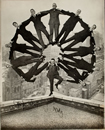 Journalists do have a way with words. It is their claim to fame, at least for those fortunate enough to find a bit. They are, understandably, sensitive to public perception of the Fourth Estate role and their position in it. Paper and ink journalism isn’t what the used to be. Today we might say “never pick a fight with someone who buys bandwidth by the terabyte.”
Journalists do have a way with words. It is their claim to fame, at least for those fortunate enough to find a bit. They are, understandably, sensitive to public perception of the Fourth Estate role and their position in it. Paper and ink journalism isn’t what the used to be. Today we might say “never pick a fight with someone who buys bandwidth by the terabyte.”
Ten years ago the European Union expanded exponentially, adding ten new Member States at one moment. For the media sectors in those countries the decade of EU membership has been brilliant for some, batty for others and baffling for the rest. General media health benefited almost immediately from cross border influence and investment. But euphoria turned, as it often does, to the daily grind of economics, politics and the digital dividend.
Intellectual property rights laws are undoubtedly overdue for revision. The digital age has, remarkably, expanded access to a wide range of words, songs, pictures and ideas. Creating all that is work, deserving recognition. The laws see the door to those works as either open or closed. The simple solution is finding a different door.
It is a given that authoritarian rulers seize every opportunity to keep the lid, metaphorically, on dissent. Free and independent media, in their view, only serves to stir the pot of discontent, many voices disturbing their realm. For the kitchen that is democracy to serve up a full course the pot sometimes boils.
Data protection and privacy are certainly hot button issues. Revelations of big data scoop-ups by various governmental agencies abetted by big data scoopers have sent a wide variety of interested parties into a spin, all crying “there must be a law.” But, as legal things go, it’s difficult to find common ground.
Attention to facts should be a duty of the news media. Regulation has its limits. The intent is keeping order among the notoriously unruly media tribe. Wild and crazy headlines may attract viewers and readers but earthquakes, literally and figuratively, can induce panic.
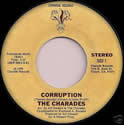 Allegations of corruption are stock-in-trade for media outlets. Ferreting out errant politicians and sleazy celebrities attracts readers, capturing them in their nastiness draws viewers. Much of the drama stretches the idea of journalism, particularly when the tables are turned.
Allegations of corruption are stock-in-trade for media outlets. Ferreting out errant politicians and sleazy celebrities attracts readers, capturing them in their nastiness draws viewers. Much of the drama stretches the idea of journalism, particularly when the tables are turned.
That big live events are fought over by many drives more than one business model. Often they compete, in that free market way. All is fair, indeed, balancing competition, rights and the money. Not everybody wins but everyone watches.
So complex are economics that multi-lateral trade agreements are best negotiated in good times. Big agreements are hard to put together anytime as countries fight for want they want with all the leverage they can muster. Every export is favored and every import is resisted. But trade is important for stagnant economies and the media sector has come into play once again.
Yet another government commission has taken a shot at monetizing that digital dividend. Tax revenue sources are more agreeable, in theory, when pinned to the fun stuff. But taxing wine is, well, cultural. There’s a quantum effect; the harder the digital dividend is chased the easier it gets away.
Among physicists there is a natural attraction to grand unifying theory. In the public sphere, media policies notably, the same motivation endures. Connecting everything is good because the alternative, after all, is frightening. Different, though, are strings attached.
There is a visceral if not quite universal understanding that the internet touches nearly everything. Without digital networks phones stop ringing, nothing moves, little work gets done and bankers can’t check their Facebook pages. Some in the media world feel more squeeze than touch. Government internet policies, though, are still works in progress.
Long accepted economic theory holds that actors in specific market sectors seek to consolidate, as those sectors mature, in search of economies of scale. Consolidation is self-limiting, though, because monopolies are inefficient. The media sector, it’s often argued, is different, not like airlines, oil, banks or pizzas.
If the digital age needs dramatically different copyright law, the wait keeps getting longer. Legislatures looking to the past to chart the future choose vague language so everybody stays happy or, at least, quiet. And it’s the small things that get in the way.
To the dismay of some and delight of others the High Level Group (HLG) tasked by EC Commissioner Neelie Kroes to sort out the terrible mess that is European media concluded that it is the European Commission’s job to determine what is good, bad and ugly. Appropriate rules to follow.
Regulation, more or less, is receiving considerable attention from media people. The dividing line is not simply between old and new media. But all media people, even where the heavy hand of regulation is the tradition, see that habits are changing and it is a race to keep up with it all.
Freedom of the press has endured, as a legal concept, for nearly five hundred years when kings were stopped from seizing printing presses. Much has changed since then. The press is sophisticated and a big business, though both diminishing under the digital roar. Perhaps the legal language needs attention.
 Broadcast licensing, for some, is a license to make money. Broadcasters have long railed against so called beauty contests for new or renewal concessions with onerous public service commitments plus technical and even financial requirements. Some regulators have agreed to make it simple and hold auctions. Sometimes it doesn’t work out.
Broadcast licensing, for some, is a license to make money. Broadcasters have long railed against so called beauty contests for new or renewal concessions with onerous public service commitments plus technical and even financial requirements. Some regulators have agreed to make it simple and hold auctions. Sometimes it doesn’t work out.
Competition in the media sphere can be ruthless. On the good side, everybody benefits from the attendant innovation. Some, though, could learn to better channel their anger. And the courts are rarely the best place.
Advancing creativity and innovation through universal connectivity enabled by new technology has been the great promise of the digital age. And, too, there’s the promise of lots of money. Who would want to stand in the way? Many, it seems.
Broadcasters often view media regulators as slightly less interesting than accountants. Always quoting the rulebook does not make good cocktail conversation. But these oracles of law and order can have a creative side… in a manner of speaking.
For the news media to speak truth to power assumptions are that power – and the powerful – are not coagulated with those speaking, lest confusion reign. Power may be the ultimate social force, bigger than money and often more fun. But confusion is a force unto itself when sown carefully into the fabric.
 The pace of change within internet and mobile technologies and the commerce created therein heightens the conflicts faced by regulators. Abuse of dominant market position is more difficult to adjudicate when penalties negatively impact innovation and investment. There’s no point in killing the golden goose.
The pace of change within internet and mobile technologies and the commerce created therein heightens the conflicts faced by regulators. Abuse of dominant market position is more difficult to adjudicate when penalties negatively impact innovation and investment. There’s no point in killing the golden goose.
The vital truth about democracy is its disregard for the conventional. Trends, though, form and reform without regard for the way things have been. There’s a thread connecting the popular rejection of austerity economics and internet freedom.
Absent a digital correction of copyright rules, rights holders will continue to pick away at Web service providers and portals through the courts. An open internet openly flaunts those “ancient, pre-digital rules” seeking sustainable business models. But rights holders want business models, too. The Web and content providers are tied, bound and, maybe, handcuffed together.
Time and again media policies become election issues. Whether it’s the status of public broadcasting, subsidies affecting publishers or the role of regulators politicians take positions in line with either ideology or expedience. Other issues, in this era of austerity, may make for better campaign news but politicians increasingly see media policies as ground to stake out.
Media freedom watchers routinely report the egregious sins of politicians against media workers. The effect is notably disheartening. Still, the pressure is attention getting.
Street protests in several cities over recent days generated more than headlines anti-piracy advocates never expected. The Anti-Counterfeiting Trade Agreement (ACTA), a multi-lateral treaty to protect “copyright protected works” through a new global enforcement mechanism, is just short of ratification. Activists mounted a campaign to derail, at most, or disrupt, at least and it may have succeeded.
In the blink of the eye, we’re in 2012. Little has changed across the threshold except the calendar. Despots continue to push on media. But there’s always an election coming. “Every nation,” we’ve heard, “gets the government it deserves.”
Media watchers can wail and moan all day and all night. Once a political strongman decides to slam the door on independent media there’s little anyone can do. It’s “regrettable.”
This century has illustrated boldly the world of media moguls, their ambitions and business practices. Tough, tireless and maybe a little crazy they go after what they want, relishing in the fight. Some of this is admirable. Some of it is a crime, particularly when mixed with the ruthless pursuit of power.
Private sector media operators have long called for reducing public broadcasting’s output. The overwhelming might of legacy, publicly funded radio and television stifles competition, they say. Politicians, sympathetic for various reasons, have been reluctant to make changes, fearing voter backlash. One of the first newly privatized radio channels has signed on to both criticism and praise.
Relations between public and private sector broadcasters are, today, as contentious as ever. Arguments are tough to resolve, both sides deeply entrenched. Selling advertising is one of many that draws out the long knives.
 Media content is special merchandise. The more exclusive, the more special it gets. It is the essence of brand value. This is not difficult to decode.
Media content is special merchandise. The more exclusive, the more special it gets. It is the essence of brand value. This is not difficult to decode.
It is the dream of every politician; direct and absolute control over news. Just think; no more embarrassing reports, photos or articles. It’s all so easy in the digital age. But dreams sometimes meet reality and politicians make dreadful editors.
Rethinking media ownership rules has edged up the public policy agenda in many countries. It is, in part, a byproduct of new media becoming more influential or, at least, giving that appearance and economic stress, or the fear thereof, of older, displaced media sources. Ownership rules, generally, have been in place since the last century. Timing couldn’t be worse.
The perfect storm cliché falls powerfully short in describing the havoc to befall the media sector in recent years. As digital media took its place in the sun economic malaise brought turbulance. Crony capitalism and poor public policy replaced crony statism and weak public policy. Riding out this storm is infinitely difficult.
New media, powered by the web, is a powerful global force. There’s a suspicion that political leaders live in a universe populated solely with like-minded souls in parallel with the new media universe. When the political and new media leaders assembled to address each other outstanding was the separation of communication. We've seen this movie before.
Attempts at reconciling the ownership rights of copyright and patent holders with the digital present have the attention of the best and brightest legal minds. Unleashing a torrent of digital economic growth is the general intent. Progress over the last decade has been nil.
Media’s inquiring eye will remain wide open and unblinking, as it should be, said Europe’s human rights court. Celebrities and other notables will not have the special privilege of knowing their exploits are headed for the tabloids. Privacy is important but the public interest rules.
Media policies, in theory, exist to help things work smoothly. Think how difficult broadcasting would be with spectrum rules. They can, in reality, be heavy handed or, even, under-handed. Unlike the laws of physics, sometimes its best to just try again.
Legal process can be arduous when claims cross borders. Broadcasters and publishers continue to struggle against governments intent on imposing control and political favoritism. International venues established by treaties often afford claimants a neutral hearing.
Legislators, members of parliaments and their lawyers have faced the digital onslaught with new laws intended to sort out the complications brought about by new media and the internet. Every stakeholder, through argument and lobbyist, has pushed their perceived need and favorite solution. New laws, though, run afoul of old laws.
The European Court of Human Rights is perceived to put privacy ahead of the public’s right to know but that doesn’t mean it doesn’t want to protect freedom of expression and it has handed down a unanimous decision that for Europe, and particularly the UK, does just that.
An important case Tuesday that didn’t center on whether sexually sizzling embarrassing information printed in a newspaper was true – it was – but rather was it anybody’s business except for those involved. In other words, does privacy trump freedom of the press?
New laws taking effect with at New Year in Hungary attracted considerable attention from media and political commentators. Twenty years after escaping the Soviet Union’s grip, the authoritarian style of government is back in favor bring with it the urge to control the media sector. It’s not pretty but it’s easy to understand.
Triangulation is a deft message management strategy, useful when touchy subjects prevent easy outcomes. It’s a creation for and of the media. Anybody with a gamblers nerve can play. Stakes in the News Corp BSkyB deal have moved to a new level.
Arts, culture and public broadcasting are always popular targets when governments start trimming budgets. And newly formed governments aren’t wasting any time. This year trimming has become slashing. Next year will bring a new plan.
News media, whether Web-based, television or newspapers, have come in for sharp criticism beyond the usual and customary complaints. Policy makers and media watchers speak disparagingly of “tabloidization” and demand curbs. At the same time broadcasters and publishers see an onslaught of censorship, certainly bad for business.
 Nothing hastens policy makers’ blood more than causes on principle. The bigger, more complicated the better because small stuff is so irritating. Copyright, privacy and net neutrality all boil together in these digital times. Some tough old boars might get stewed.
Nothing hastens policy makers’ blood more than causes on principle. The bigger, more complicated the better because small stuff is so irritating. Copyright, privacy and net neutrality all boil together in these digital times. Some tough old boars might get stewed.
Digital media’s rise has profoundly affected radio, television and newspapers. There have been so many new things to learn. Politicians seem slower than most. But they’re getting the idea.
Television is really quite simple. Even with a zillion channels, people choose one program after another. Sometimes they pay for their pleasure directly and sometimes indirectly. But for people on the fringes that’s not enough.
All that’s left in the turf war between new and old media is, short of a peace agreement, an end to hostilities. With fortunes in the bank and politicians in the pocket old media has, largely, failed to seize the high ground occupied by internet insurgents. Some of the old warriors still don’t get that new media is different.
The 17 judges of the European Court of Human Rights have ruled unanimously in favor of journalists protecting their sources in a Dutch case; in the UK the judge who almost single-handedly has written privacy case law that greatly favors the private affairs of celebrities over the media’s right to publish is being replaced; and Le Monde, France’s most prestigious newspaper, says it is suing “an unnamed person or persons” for ordering the domestic intelligence agency to investigate one of its journalist’s sources That’s fresh media air sweeping across Europe!
Three highly-paid English football players and a Scottish golf star have gone to court within the past 30 days asking for, and getting, gag orders preventing newspapers printing stories about their so-called private lives. There is no Act of the UK Parliament that provides for privacy law so the UK courts have taken it upon themselves to write such law as they go along. In the UK, where Parliament has failed to act the courts are not afraid to tread.
It was a big day for broadcasters at the European Commission, with two State aid decisions and one for Mr. Murdoch. The “lighter touch” is in evidence. All three decisions are “subject to conditions.”
Iceland’s Parliament has approved a law that basically protects media from any legal threats and the UK has announced it will reform its draconian libel laws that are long overdue. European courts of late have been more concerned with protecting privacy than they have in protecting the news media, but there now seems to be at least some shift to protecting free speech.
As the World Cup in South Africa is cheered into the football history pages, television audiences have cheered loudest. Viewers by the millions witnessed the “thrill of victory, the agony of defeat” to the joyful noise of the vuvuzela. As morning breaks in South Africa, television’s digital future is making a different noise.
In the early digital days one of the great laugh-lines from media conference speakers put the great fear of many in the headlights. It was nervous laughter. The specter was far in the distance and its shape difficult to fathom. Nearly a generation later some still fear being roadkill on the information superhighway. Others are stepping over it.
In every journalist burns the visceral desire to tell the big story. Whether it’s finding a hero, uncovering a villain or solving a mystery, bringing “truth to light” is the flame that unites those who toil deep, late and sometimes dangerously. The dark side, though, is powerful.
 The media world is nagged by this shrinking feeling. After decades of more, more and more, the playground is spoiled by new bright, shiny toys. But when media people and policy makers meet the voices sound like different ages.
The media world is nagged by this shrinking feeling. After decades of more, more and more, the playground is spoiled by new bright, shiny toys. But when media people and policy makers meet the voices sound like different ages.
Europe lags the United States and Asia in innovation. And it’s a bad thing, say politicians. It’s good to look for a solution.
What began as catching that innovative wave, digital means have come to the media realm. Transformative has been the change from waves to ones and zeros just as wired to wireless has transformed the telephone. Convergence hasn’t been easy, leaving many in media dumbfounded by continued resistance to digital reality.
There’s a lot of money in politics. As political stakes rise more money pours into the election process. For media companies, it’s just another revenue stream but one very lucrative.
The UK Parliament passed the long awaited Digital Economy Act, presumed to stimulate economic activity in and around the digital realm. Even the manner in which it was threaded through the political needle reveals more about ‘act’ than ‘digital’ or ‘economy.’ It’s the reason politicians and bankers are held in such high esteem.
Radio frequencies are, of course, where most broadcasters live. Other services occupy the spectrum space, too. Every stakeholder, new and old, has deep and abiding interest in promoting their need for digital space, spectrum being limited by physics.
Eager for large red headlines, politicians regularly woo voters with plans for public sector reform. Tales of extravagance also make headlines, particularly of the rich, the powerful and television-blessed. Public broadcasting becomes a target of convenience.
Financing public broadcasting has become enormously complicated. Chasing a 21st century business model for a big part of the media sector has government planers trying new ideas. Unintended consequences befall those who fail to think things through.
 All things television are all important to politicians. Even where journalists are held in low esteem and media credibility is low, politicians flock to interviews with newspapers, television and radio. And they don’t necessarily choose their words carefully.
All things television are all important to politicians. Even where journalists are held in low esteem and media credibility is low, politicians flock to interviews with newspapers, television and radio. And they don’t necessarily choose their words carefully.
Internet access, rights to and fro, is a hot topic, the cyberwar between China and Google grabbing recent attention. Leaders of governments with a particular orientation have become obsessed with internet because of its wealth and its power. It’s all about money and control.
The dispute over national radio license renewals in Hungary, with suspected political intrigue, has spilled over to the United States Congress. Political and media watchers in Hungary have been surprised by international expressions of concern after US-based broadcaster Emmis International and Austrian investment fund Accession Mezzanine Capital lost license renewal applications. While both firms pursue legal remedies the political heat on the Hungarian government is rising.
The analogue days at the European Commission are numbered. As European Commission President Jose Manuel Barosso made public the EC’s portfolio assignments a flood of speculation rose about impact on the media sector. One certainty is less happiness among big telecoms.
Before the fall of the Berlin Wall small fissures in the media landscape grew bigger. Reunification of Germany was only one set of changes. Even as German media followed a unique path, Central and Eastern Europe media would follow.
 Complexity doesn’t lend well to rule making. European institutions – the Parliament, Council of Ministers and the Commission – debated the telecoms package long and hard. Compromise is upon us.
Complexity doesn’t lend well to rule making. European institutions – the Parliament, Council of Ministers and the Commission – debated the telecoms package long and hard. Compromise is upon us.
The ugly side of politics and broadcasting has reared its head once again. Politicians see broadcasting licenses as fair game for political pay-offs. That everybody else loses is not their concern.
Despite being asked not to by the UK Press Complaints Commission (PCC) a few days earlier, the Murdoch tabloid News of the World on the Sunday and Associated Newspapers’ Daily Mail on the Monday each ran big picture spreads of the England football coach on holiday in Spain with his wife, both soaked in mud from a treatment. They certainly weren’t looking their best and the captions and cartoon bubbles of what they might have been saying to one another certainly poked big fun of them. By Wednesday both newspapers had asked forgiveness and sweetened the pot with charity donations.
That all politicians seek to control all media is an undeniable reality. Imperious politicians seek that control imperiously. Progress in press freedom remains illusive.
Pirate Bay’s future has turned bleak. Attempts to turn the bitTorrent peer-to-peer download site legitimate with a new owner seem to have run aground. Then a Stockholm court ordered ISP service cut off.
 Language in Brussels is delicate. Even with translations into each European tongue details are precise and precisely spoken. Misunderstandings are to be avoided; sensitivity above all.
Language in Brussels is delicate. Even with translations into each European tongue details are precise and precisely spoken. Misunderstandings are to be avoided; sensitivity above all.
Public broadcasters across Europe should be celebrating. Audience shares are recovering, in many countries, from the entry of ‘the commercials’ last century. Success, though, just brings out the critics.
Migration from analogue to digital television is well underway, complete in many Western countries. Public policy reasoning for moving free-to-air television channels into the spectrum stratosphere had everything to do with efficiency. Those clunky analogue VHF channels ate far more spectrum than necessary and the number of digital channels – in a different chunk of spectrum – could, then, expand. More TV choice would, said the policy makers, make more people (viewers, at least) happier.
Asking for money these days is a challenge. Particularly difficult is asking for tax money. Some projects once deemed necessary face abandonment. “Success has a thousand fathers, failure is an orphan.”
Ah, the great digital impasse is as deep and muddy as ever. On one side there are the ‘digital natives’ reshaping media content faster than you can say Guttenberg. On the other are content producers and distributors, squeezed to a pucker, looking to squeeze anybody.
 The latest round of the pitched battle between private and public sector media rang to a close as the European Commission issued revised rules on State funding. It’s all in the spirit of reducing uncertainty. But uncertainty remains.
The latest round of the pitched battle between private and public sector media rang to a close as the European Commission issued revised rules on State funding. It’s all in the spirit of reducing uncertainty. But uncertainty remains.
The buzzword on both sides of the Atlantic this week is “broadband” – the UK released its long awaited digital report that pledged universal UK access to broadband services by 2012, while in the US FCC chairman nominee Julius Genachowski told a Congressional hearing he wants to use $7.2 billion of stimulus money to expand US broadband delivery.
Reality TV – and certainly the talent contest variety – are proven popular programs with audiences worldwide. Broadcasters, originally attracted by comparatively low cost, push producers for bigger stunts. The genre has matured, something producers fight. Even in fair fights somebody gets bruised.
Political advertising, hatched six decades ago in the United States, is seen as a necessity for politicians and political parties. Political campaigns in Europe have become just as professional. With that has come the same level of nastiness in political speech.
Depending on your role within a newspaper there are two prevailing views on whether the media deserves tax breaks because of their dire economic circumstances. The editorial pages insist that for newspapers to remain honest they shouldn’t accept governmental financial help; publishers on the other hand say that for newspapers to remain in business they’ll take help from wherever they can find it.
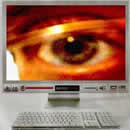 Imagine, if you will, feeling compelled to write your local elected representative about an interest that affects not just you, you believe, but a lot of people. You thoughtfully compose a letter – email, being the post-modern age – and send it off. Your elected representative was so impressed he, then, forwards your email to the government department working on the particular issue. Then a person at that government office decides to forward your email to your employer. And then you get fired.
Imagine, if you will, feeling compelled to write your local elected representative about an interest that affects not just you, you believe, but a lot of people. You thoughtfully compose a letter – email, being the post-modern age – and send it off. Your elected representative was so impressed he, then, forwards your email to the government department working on the particular issue. Then a person at that government office decides to forward your email to your employer. And then you get fired.
What a difference in culture the Atlantic Ocean can make. In Switzerland, where ftm is produced, the public broadcaster has shown such US cable TV shows as the Sopranos and Deadwood with dual soundtrack – the viewer could choose the original English or the national language – and there was no national furor over how every other word seemed to be the 'F' word.
Commercial radio broadcasting lives and dies on its ability to monetize its brand and program. There is risk and it is not new. With public broadcastings built-in advantages the precarious balance between public and private sector media is ready to tip.
Privacy rights are accepted and, generally, honored in Europe. The wealth – literally and figuratively – of personal information made available through the internet staggers the imagination. Staggering, too, is the prospect of privacy rights being trampled.
Competition between public and private sector broadcasters plays on the airwaves everyday. More and more it’s played on new media platforms. Out of listeners and viewers attention the high stakes game threatens the very reason it was created.
 Frequency plans are the nuts and bolts of the regulators job. Broadcasters want licenses and coverage. Regulators, mostly, want order. Sometimes confusion reigns supreme.
Frequency plans are the nuts and bolts of the regulators job. Broadcasters want licenses and coverage. Regulators, mostly, want order. Sometimes confusion reigns supreme.
 Always creative, Dutch broadcasters have serious fans. And, in times of need, turning to the fans for financial support could be one way to make it through the day. One broadcaster is doing just that and hopes to raise a few million in short order.
Always creative, Dutch broadcasters have serious fans. And, in times of need, turning to the fans for financial support could be one way to make it through the day. One broadcaster is doing just that and hopes to raise a few million in short order.
Radio and television licenses, granting access to public airwaves, typically come with a wide range of requirements. Always included is technical competence, sometimes financial well-being. But most regulators shy away from interfering with management and programming content. This makes sense because regulators tend to be lawyers, accountants and engineers. And, despite protestations to the contrary, executives of these regulatory agencies tend to be political appointees.
It stalks all lands, respecting no species. It targets the large and healthy, wounding but not killing. Part viral, part psychological and, seemingly, part political it lies, in wait, in the soil. There is no escape.
Debate in the French National Assembly on a public broadcasting law resumed after a stich up of several days. But the Members late return to the business of State likely means enactment overhauling France Télévisions and Radio France won’t be in place for the January 5th deadline for removing advertising from the public broadcasters. President Nicolas Sarkozy set the ad cut-off deadline and so it is.
 Broadcasters have enough to worry about without confusion over regulation. When governments and regulators don’t agree on rules, the principle of legal certainty flies out the window. Without that nobody wants to take on the risks.
Broadcasters have enough to worry about without confusion over regulation. When governments and regulators don’t agree on rules, the principle of legal certainty flies out the window. Without that nobody wants to take on the risks.
It’s not clear whether the linear broadcast model is dying faster than the ad model. Rigor mortis hasn’t set in but everybody hears the rattles. The patient – television – is convinced the end can be put off by less regulation, more regulation or otherwise divine intervention. That would be new media.
For a decade the European Commission has stepped carefully. Little, if anything, must harm public broadcasting. Competition Commissioner Neelie Kroes has explained how the rules are going to be played. There will be a test. Answers will not be provided in advance.
 “Scandal” shouted the media after the denial of a successful local broadcaster’s concession. But popularity and a sustainable business model may have turned the government against them. We’ve said it before; all politicians seek to control all media.
“Scandal” shouted the media after the denial of a successful local broadcaster’s concession. But popularity and a sustainable business model may have turned the government against them. We’ve said it before; all politicians seek to control all media.
 Relations between Ukraine and Russia are complicated. About half Ukraine’s population is, well, Ukrainian and reflexively supportive of Ukrainian language media. The rest of the country, predominantly eastern and southern Ukraine, is Russian speaking… and predisposed to watching TV channels from Russia. The broadcasting regulator wants Russian channels off the cable systems.
Relations between Ukraine and Russia are complicated. About half Ukraine’s population is, well, Ukrainian and reflexively supportive of Ukrainian language media. The rest of the country, predominantly eastern and southern Ukraine, is Russian speaking… and predisposed to watching TV channels from Russia. The broadcasting regulator wants Russian channels off the cable systems.
There’s no superhighway getting from old media land to new media land. Public and commercial broadcasters bump into each other. Publishers accelerate only to find competitors enjoying tea at the rest-stops. Along the way, regulators set up toll-booths and politicians set up detours. Meanwhile, the public – chased by a swarm of buzzing advertising people – flies on to new media land.
Politicians and media owners endure each other, often uneasily. Occasional snipping, back and forth, is healthy. Pushed to frenzy, these clashes never end well.
Tiny community radio stations, always very local, sometimes quite original, dot FM dials. Their financing is often flimsy with programming bordering on the indescribable. With the FM ‘shelf-space’ ever more valuable regulators feel pressure to maximize every channel slot. But the health of the medium depends on reaching real people, no matter how small the audience.
 As copyright holders scramble to assert claims over everybody and everything that sends or receives anything through the Web legal arguments, for and against, are becoming more sophisticated. Across the globe there’s little consistency and less on the horizon. The good news is that innovation leaps forward as the lawyers squabble.
As copyright holders scramble to assert claims over everybody and everything that sends or receives anything through the Web legal arguments, for and against, are becoming more sophisticated. Across the globe there’s little consistency and less on the horizon. The good news is that innovation leaps forward as the lawyers squabble.
Acting on warnings from French Ministers of Health and Culture regulator Conseil Supérieur de l'Audiovisuel (CSA) is issuing rules for TV channels and programs targeting children under three years of age. The directive was announced after a consultation with experts (August 14). In June Culture Minister Christine Albanel told ”...parents not to use these channels. They bombard children with images and sounds. We do not know what effects this may have on such young people."
Hard to believe the furor was more than four years ago when Janet Jackson’s “wardrobe malfunction” at the 2004 Super Bowl half-time show bared her right nipple on global television for all of 9/16ths of a second. The Federal Communications Commission mightily beat its chest, told CBS it couldn’t show such things and stuck it with a $550,000 fine.

The European Commission has snapped music rights collecting societies confiscatory hold over cross border broadcasting. But the music people vow “havoc” on broadcasters
Switzerland already has one of the world’s highest, if not the highest, TV and radio annual license fee – a total of 462 Swiss Francs ($454, €285, £228) divided into quarterly payments -- and about 95% of households pay the TV fee and 90% pay the radio fee, the money going to support the country’s public broadcasting system (TV is allowed advertising revenues in addition, radio is not). But are there those who slip through the net by using something other than a TV or radio? The regulators think so.
 Members of the European Parliament effectively thwarted Commission plans to bring big telecoms to heel. With less than a year before the next European Parliament elections and a new Commission before the end of 2009 telecoms have little to fear from increased European regulation. For media content producers it means more competition as telecoms keep consumer prices up and continue to invest in content.
Members of the European Parliament effectively thwarted Commission plans to bring big telecoms to heel. With less than a year before the next European Parliament elections and a new Commission before the end of 2009 telecoms have little to fear from increased European regulation. For media content producers it means more competition as telecoms keep consumer prices up and continue to invest in content.

Rules on advertising are getting tougher and, often, tediously specific. Ad rules appear in media laws, consumer protection rules and commercial codes. Regulators, lawyers all, delight in their craftsmanship as much as seeing broadcasters pour over every sentence and clause – and every new interpretation. It’s rare – and revealing – when a regulator explains it all.
It’s the old story of killing the golden goose. Once the Federal Trade Commission (FTC) advised back in 2005 that TV product placement was perfectly ok without having to tell viewers that a product was being “placed” as an advertisement, then the networks and Hollywood just plain went to town on a new way to print money. There are shows today where it’s not uncommon to find from 3 - 5 product placements per minute.
 Public broadcasters in Germany may be forced into a choice; either give up ad revenue or scale back Web services. Powerful publishers have joined the chorus of private sector broadcasters and the European Commission offering PSBs a classic Morton’s Fork dilemma…or Catch-22.
Public broadcasters in Germany may be forced into a choice; either give up ad revenue or scale back Web services. Powerful publishers have joined the chorus of private sector broadcasters and the European Commission offering PSBs a classic Morton’s Fork dilemma…or Catch-22.
Regulators unable to find workable solutions to real problems keep taking out their frustration on media, advertising and marketing. Restrictions and bans on tobacco, alcohol and junk food ads are meant to decrease demand for products carrying elements of risk – even when all legal. Now the European Commission is gearing up for an assault on automobile advertising in the name of environmental risk.
The accountants in our midst thrive on certainty. So do the lawyers. So do the investment bankers. To win their faith – necessary for good cash flow management - we give them forecasts, predictions, prognostications to satisfy their inner need to be ahead of the game. What happens when we say, “We don’t know what the future holds”.

What is media supposed to be? The post-analogue, new media teaches that media users drive that definition. Media is servant to a public with varied interests, tastes and pleasures. This is not an idea popular with politicians.
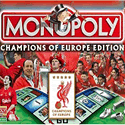 EU competition law is clear. Whether telecom or broadcast distribution, monopolies are forbidden, particularly State monopolies. One by one, they are being unraveled and it’s an unraveling experience.
EU competition law is clear. Whether telecom or broadcast distribution, monopolies are forbidden, particularly State monopolies. One by one, they are being unraveled and it’s an unraveling experience.
 Europe’s national film industries have been in a long battle, mostly with Hollywood, often among each other, soon with Brazil and Bollywood. After a two decades waiting a French film, the documentary style “Entre les murs” by Laurent Cantet, won the Golden Palm. Other European film works partook of the prestige. EC President José Manuel Barroso said, “Europe can be proud.”
Europe’s national film industries have been in a long battle, mostly with Hollywood, often among each other, soon with Brazil and Bollywood. After a two decades waiting a French film, the documentary style “Entre les murs” by Laurent Cantet, won the Golden Palm. Other European film works partook of the prestige. EC President José Manuel Barroso said, “Europe can be proud.”
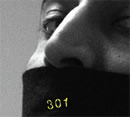
Turkey’s parliament debated long into the night and passed amendments to a notorious defamation law. Media watchers want more. Opposition politicians want less. Turkish media is tired of hearing about it.

Children learn by breaking rules, testing what’s possible, finding their own choices. They see a lot of TV, some really good, some really stupid. Main channel broadcasters cutting back on children’s programming are acting in loco parentis; not to kids but their parents.
Swiss Federal Council granted public broadcaster SSR-SRG idée suisse a new concession. SSR-SRG operates 18 terrestrial radio channels in the four Swiss linguistic regions. It is the country’s largest broadcasting organization, employing about 5,800 persons, with an annual budget of about CHF 1.5 billion (€950 million).
 The month long diplomatic conference on world-wide telecommunications gave broadcasters a respite in the war with mobile telephone operators over scarce and valuable spectrum. The World Radiocommunication Conference 2007 (WRC07) was held in Geneva, Switzerland under the auspices of the International Telecommunications Union (ITU). Nearly 3000 delegates from 160 countries debated proposals on virtually every spot on the spectrum.
The month long diplomatic conference on world-wide telecommunications gave broadcasters a respite in the war with mobile telephone operators over scarce and valuable spectrum. The World Radiocommunication Conference 2007 (WRC07) was held in Geneva, Switzerland under the auspices of the International Telecommunications Union (ITU). Nearly 3000 delegates from 160 countries debated proposals on virtually every spot on the spectrum.
 Markets may fail, says a report commissioned by broadcasters groups, if TV spectrum continues to be sold-off to the highest bidders. Broadcasters providing ‘ public value’ are at a disadvantage against rich telecoms selling the ‘mobile myth,’ it says.
Markets may fail, says a report commissioned by broadcasters groups, if TV spectrum continues to be sold-off to the highest bidders. Broadcasters providing ‘ public value’ are at a disadvantage against rich telecoms selling the ‘mobile myth,’ it says.

The message that telecoms and vendors wanted people to take home from the Mobile World Congress last week was that it won’t be too long before every shirt pocket or purse will soon by carrying a very smart phone. But along came EU Telecoms Commissioner Mrs. Viviane Reding on the first day and spoiled the party by telling EU telecoms that they need to greatly reduce international text roaming charges by July 1, or she’ll do it for them.

One would think that a British prime minister is the most powerful person in the UK, but with Gordon Brown and Tony Blair both having tried hard to keep their Rupert Murdoch relationships secret there is the perception that if Murdoch is not the most powerful person in the UK, then certainly he is the most feared.
Governments love public broadcasters that dutifully toe the line. The reward is ample financing and legal structures sufficiently opaque to hold off private sector competition. Some might call this synergy.
 Center-right political parties are threatening to block Slovak ratification of the EU reform treaty unless Prime Minister Robert Fico withdraws a controversial draft media law. Since taking power in 2006 PM Fico has engaged in a war over media and press reforms. He has consistently criticized the existence of any press criticism.
Center-right political parties are threatening to block Slovak ratification of the EU reform treaty unless Prime Minister Robert Fico withdraws a controversial draft media law. Since taking power in 2006 PM Fico has engaged in a war over media and press reforms. He has consistently criticized the existence of any press criticism.
Here are the UK government’s priorities when it comes to valuing child health: it’s worth taxpayers paying £372 million ($740 million, €495 million) for a vigorous multi-faceted program to combat obesity that includes a £75 million ($150 million, €100 million) advertising campaign aimed at adults to vigorously promote healthy eating and exercise lifestyles. But, for now at least, it’s not worth getting more bang for that taxpayer spend by endangering the £211 million that TV companies would lose if all junk food advertising were banned before 9 p.m.
Competition Commissioner Neelie Kroes wants to ask some questions. A day after French President Nicolas Sarkozy announced his intention to radically change the way French public broadcasting is funded, the European Commission fires its own shot over that bow.
Along party lines the Federal Communications Commission has approved, as Chairman Kevin J. Martin proposed new rules for cross ownership of broadcast stations and newspapers in the same city, citing the need to strengthen the newspaper industry. It was something the Republicans and big business wanted, and something the Democrats oppose so vehemently that there is talk of trying now to get Congress to overrule the FCC
 After years of turning a blind eye toward Italian flaunting of television ad rules, the European Commission has cast its’ steely grey gaze. While Silvio Berlusconi commanded both public and private TV the attitude was, er, nuanced.
After years of turning a blind eye toward Italian flaunting of television ad rules, the European Commission has cast its’ steely grey gaze. While Silvio Berlusconi commanded both public and private TV the attitude was, er, nuanced.
Surprise! Surprise! Russian President Vladmir Putin’s endorsement of Gazprom Chairman and all-around Kremlin handy-man Dmitry Medvedev as the next Russian president sent the wires chirping. Medvedev has been on the short list of potential successors for several months. Last January he appeared at the World Economic Forum in Davos, Switzerland, wowed the crowd and sent Russia watchers twittering.
A major ruling by two UK High Court Judges says that blasphemy laws do not apply to broadcasts or the theater. The ruling defeats an attempt by a Christian group for the courts to find that the BBC committed blasphemy in airing the Jerry Springer rock musical in 2005 that contained more than 200 swear words, and depicted God, Jesus (wearing a diaper), Mary, Adam and Eve and The Devil on a special Jerry Springer talk show set in hell.
 It’s the week to watch if you’re in Geneva or Brussels. Television, they say, is sure to suffer if nameless, faceless Eurocrats and functionaires have their way. Why can’t things be like the old days?
It’s the week to watch if you’re in Geneva or Brussels. Television, they say, is sure to suffer if nameless, faceless Eurocrats and functionaires have their way. Why can’t things be like the old days?
Europe’s long war with Microsoft is drawing to a close. Weapons (legal) have fallen silent. Apologies made. Injured removed. And, of course, reparations paid.
The European Commission for the second time has approved the Sony BMG (Bertelsmann) recorded music joint venture. The merger had been approved in 2004, but the EU’s Court of First Instance blew it out of the water two years later, accepting an appeal by Impala, an independent record group label representing 2500 independent music companies, that claimed the merger was not studied closely enough for monopoly issues. With that court decision, t the Commission undertook another investigation which has taken a year to complete.
Friday marks Paul Corley’s final day as Managing Director of GMTV, a position he resigned a month ago over the furor of deceptive premium-rate phone contests for which he and his controller of enterprises fell on their swords. And the Ofcom (office of communications) regulator is seeing him off with a big bang – a £2 million ($4 million, €2.86 million) fine for the early morning UK national commercial network owned 75% by ITV and 25% by Disney.
A year ago last January the German anti-trust office (Bundeskartellamt) seemed rather pleased with itself when it deemed Axel Springer’s bid for ProSiebenSat “unacceptable under competition law.” As the world knows, Axel Springer’s CEO Matthias Doepfner wasn’t pleased but they fought the good fight and moved on…to court. The German Federal Court of Justice (September 25) overruled a district court decision vacating Axel Springer’s complaint against the anti-trust office.
Lawyers for Apple met with the European Commission’s Competition Directorate to explain pricing. Most MBA’s spend their entire careers trying to figure out European pricing, between the laws and the cartels. A significant part of music industry – one of the most powerful cartels – decided not to attend. The two day hearings were cut to one.

The European Commission and European national regulators celebrated Monday’s court ruling against Microsoft. Big companies with legions of lawyers have met their match. EC Competition Commissioner Neeley Kroes squashed Microsoft like a bug.
followup(1), comment(0)
 As one of the most powerful segments of the content business, the music industry does not hesitate taking court action when it feels slighted. Nothing raises its ire more than downloading and file-sharing. And typical of industries in decline – or serious need of restructuring – its legal battles tend to be business negotiations by other means.
As one of the most powerful segments of the content business, the music industry does not hesitate taking court action when it feels slighted. Nothing raises its ire more than downloading and file-sharing. And typical of industries in decline – or serious need of restructuring – its legal battles tend to be business negotiations by other means.
Private sector broadcasters venturing into news content often find themselves targets. Most prefer programming lots of music without any talk bordering on the controversial to avoid government wrath. The new Greek media law provides yet another example of State control.
Healthy living is the new standard by which many companies are judged these days, so the Walt Disney Company is banning smoking scenes from its movies from now on. That coincides with an announcement in May by the Motion Picture Association of America (MPAA) that when it rates new movies it’s going to judge whether smoking is too pervasive, just as it judges drug use, nudity, violence, and profanity.
 The UK television telephone voting scandal has reached such proportions that even the prime minister had to address the issue in Parliament and say the industry needs to clean up its act, fast. And the first head on the bloc was the managing director of GMTV, the national breakfast time commercial franchise, that now admits that viewers had spent £35 million ($70 million, €51 million) on competitions over four years in which they had absolutely no chance to win.
The UK television telephone voting scandal has reached such proportions that even the prime minister had to address the issue in Parliament and say the industry needs to clean up its act, fast. And the first head on the bloc was the managing director of GMTV, the national breakfast time commercial franchise, that now admits that viewers had spent £35 million ($70 million, €51 million) on competitions over four years in which they had absolutely no chance to win.
When a country signs up for EU membership it accepts the rules of the club. Hungary – and others in the EU 2004/2006 class – had a hard time accepting that Brussels takes this acquis communautaire seriously. The reality check was the summons to appear before the European Court of Justice (ECJ).
A strong letter went out to Spain this week from the European Commission. In effect it said, don’t parse definitions; TV ads are TV ads and you are airing too many.

Major treaties, internationally binding, are consecrated every so often, typically years in the making. In this digital age, that’s a problem. WIPO’s Broadcasting Treaty might be dead, for now, but it remains a problem looking for a place to happen.
Reality TV critics have predicted the genre’s demise every year for the past ten or so. True: it’s a mature concept and viewers have a seemingly insatiable desire for more edgy and competitive programming. The Big Donor Show (De Grote Donorshow) turned reality on its head…or another body part.

The 10-year history of English language radio station WRG-FM in Geneva, Switzerland is fascinating for the major players that have had their fingers in that pie and for plans by public broadcaster Radio Suisse Romande (RSR), an equal shareholder with BBC World Service, to get the station’s license switched from commercial to public broadcasting, and then dump the advertising.

Networking is the essence of Brussels. As the seat of the European Commission (EC) and home to hundreds of non-governmental organizations (NGO) and associations seeking to impact European and world-wide policies, Brussels is seen as the place to debate.
Ask any media crystal gazer to name the next big thing and there is one, resounding answer: Mobile TV. People viewing something on that mobile phone’s tiny screen is the center-piece of new media thinking, or dreaming, or wishing, or hoping. Sadly, though, people are just not clamoring to help cellcos (mobile telephone providers) increase those billable seconds. The solution, of course, is government subsidies.
Remember that classic scene in Now Voyager (1942) where Paul Henreid lights two cigarettes in his mouth and then gives one to lover Bette Davis? Made screen history. Well, times are changing and the Motion Picture Association of America (MPAA) says that when it rates its movies from now on it’s going to judge whether smoking is too pervasive, just as it judges drug use, nudity, violence, and profanity.
TV bigwigs meeting at the Cable Show in Las Vegas this week had one topic on which they all seemed to agree – the Federal Communications Commission should keep its nose out of trying to regulate how much violence appears on US television.
There’s a slight thaw in the relationship between Google and French language newspapers printed in Belgium. Copiepresse, the publishing group representing the newspapers, and Google have agreed a system for Google to link the newspapers’ web sites and those newspaper sites are thus accessible again on Google.
Europe’s public broadcasters breathed a sigh of relief this week as the final challenge to the radio and TV license fee has, possibly, been closed. European Commission Competition Commissioner Neelie Kroes ended an investigation into German public broadcasters ARD and ZDF and the use of public money. Commissioner Kroes accepted the German governments plan to revise PBS finance rules.

Moral revulsion has never been enough legally to regulate American TV violence, but the Federal Communications Commission is giving another go at preventing children from seeing what most medical and psychological groups say kids really should not be watching.
Media industry groups are up in arms over the encroaching future. It’s bad enough that media consumers have been enticed by every digital evil. Now – horror of horrors – the rule makers won’t stop reality.
Childhood obesity will be a significant issue for the European Commission in the coming year as well as among many national governments. The picture is painful and troubling. The narrative blames advertising and television.
Media’s growth engine is the World Wide Web. Not a month goes by without another fact-filled report citing evidence that consumers really like accessing media content through the internet. Not a nano-second goes by without another industry that once made lots of money through traditional media attempting a new extortion on the internet.
 The win for Google: A Belgian court basically reaffirmed what Google says it does anyway and ruled that if copyright holders ask for their material to be removed from Google News then it be gone within 24 hours or face a €1,000 daily fine. Google says its policy anyway is to remove material when asked (but not necessarily within 24 hours) so now it has a legal timeframe and it knows the penalty for late compliance.
The win for Google: A Belgian court basically reaffirmed what Google says it does anyway and ruled that if copyright holders ask for their material to be removed from Google News then it be gone within 24 hours or face a €1,000 daily fine. Google says its policy anyway is to remove material when asked (but not necessarily within 24 hours) so now it has a legal timeframe and it knows the penalty for late compliance.
Official Europe – the European Union – is now 484 million souls, 4 million square kilometers and 27 Member States. The most recent European enlargement, adding 12 new Members since 2004, did little to quell the turbulence already apparent in those countries. The media sector in the new Member States, in its unique status as both monitor and reflector, has been particularly hard hit, blown completely off courses set decades before.
On both sides of the Atlantic the campaign is gaining steam – obesity is a major problem, it’s continually getting worse in children at ever younger ages and one big villain is television. And although some food producers have voluntarily cut back targeting ads at the under 12s, and some government agencies have proposed what they see as tough advertising restrictions, the verbiage from some lawmakers and lobby groups is that it’s not enough.
 The long and winding road to set a grand unified European media policy reaches a crossroads, now and again. The journey is fascinating, perhaps more than the destination. Each crossroad, though, becomes a defining moment for the multitude of media stakeholders.
The long and winding road to set a grand unified European media policy reaches a crossroads, now and again. The journey is fascinating, perhaps more than the destination. Each crossroad, though, becomes a defining moment for the multitude of media stakeholders.
It’s an easy impression to make. Digital broadcasting roars ahead while FM radio creeps toward extinction. It’s a perception that’s not quite reality.
American television – its style and language – strikes Europe’s culture protectors with horror. Ads, ads more often, ads for fast food, ads for SUVs – the narrative bleeds together. Ads on television are in and of themselves corrupting in countries where ad spending is still highest in dead-wood media.
Europe-wide television and advertising rules will take a decidedly liberal turn as members of the European Parliament voted (Wednesday December 13) to overhaul of the Television Without Frontiers Directive.
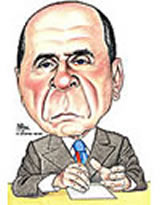
There never has been any love loss between the current Italian Prime Minister Romano Prodi and former prime minister Silvio Berlusconi. They have been political rivals for many years and now that Prodi is back in power his government is aiming right at the jugular – Berlusconi’s Mediaset TV empire that flourished so well from government decisions made when its boss was prime minister.
Obesity is considered the number one growth disease in Europe, and it is getting worse the most in the under 16s. Could all those junk foods high in fat, salt and sugar that are heavily advertised in TV programs aimed at the under 16s be a contributing cause? The UK TV regulator thinks so, and has shocked commercial broadcasters by wanting to ban such ads aimed at kids starting in January.
 As the political wind changes in Washington DC so might the domestic “industry” and US government international broadcasting. Further de-regulation, in particular cross-media ownership, will grind to a halt. US media analysts, largely of the Wall Street variety, see an ominous shift away from the staunchly partisan, pro-big business US Congress.
As the political wind changes in Washington DC so might the domestic “industry” and US government international broadcasting. Further de-regulation, in particular cross-media ownership, will grind to a halt. US media analysts, largely of the Wall Street variety, see an ominous shift away from the staunchly partisan, pro-big business US Congress.
It was supposed to be a three-hour debate about Internet freedom of expression, but it quickly turned into another bash of US companies for enabling China to impose Internet usage restrictions, but it fell to the Chinese representative to defend the Americans the best -- there are no Internet usage restrictions in China, so what’s all the fuss about?
The bomb shell that was DG Info Commissioner Reding’s first draft revising of the parchment era Television Without Frontiers directive a year ago still spews its’ sparks. European media rules, it seemed, will be platform neutral. The sub-text, of course, was to bring on-line media in line with all the broad EU level rules, enforced or not, that make European media the unique creature it is.
Regrettable but true, protesters in the Hungarian capital Budapest continued violence through the week, specifically targeting media outlets.
To hear Google tell it, the search engine didn’t know that a Belgian court was even considering a case that found favorably for the Belgian newspaper industry, with a ruling that could possibly stand as a precedent to thwart the current Google News way of doing business in Europe.
Time being relative, the United Nations organization watching intellectual property law is moving at blinding speed. In the blink of the galactic eye broadcasters will likely have a new set of worldwide rights…and governments will have new controls on the internet.
It all seems too silly to be true – that in the land of free speech, television stations quiver in case a curse word or two uttered on air during a news documentary covering the 9/11 tragedy will cost those network affiliates hundreds of thousands of dollars in fines.
Reports from the scene tell of a brief, rather dull auction for the Danish national radio license formerly known as Sky Radio. The five qualified bidders had already narrowed to three. State-owned commercial broadcaster TV2 took the prize.
Turner Broadcasting knows a good PR opportunity when it sees it for its Boomerang cartoon cable network. When a woman complained to the British TV regular that smoking in two Tom and Jerry cartoons was bad for the health of tiny viewers, the broadcaster responded it would remove from those two cartoons any smoking that appeared to be condoned, acceptable, or where it could encourage imitation.
Losing the Italian general elections by less than one percentage point three months ago could well cost Silvio Berlusconi dearly. Italy’s richest businessman and former prime minister has seen his Constitutional reforms that he rammed through Parliament before the election rejected in a referendum, the government says it is going to overhaul media laws that just happen to favor his Mediaset, a judge has ordered him to stand trial for tax fraud concerning alleged Mediaset financial shenanigans, and a Spanish court is looking at tax fraud concerning his holdings in Telecinco.
Immediate response was rather muted to EC Media Commissioner Vivaine Reding proposed revisions to the TV Without Frontiers Directive. That was six months ago. EURO-MEI and British government, regulator and media business are firmly opposed...for different reasons.
Publishing giant SanomaWSOY received two new radio licenses while MTV Media and SBS each lost one. The Transport and Communications Ministry issued six national and 47 local radio licenses for the five-year term beginning January 1, 2007.
If there is any doubt that Silvio Berlusconi knows how to work the media you simply have to look at his tactics during the recent election. Starting the unofficial campaign some eight points down he lost by just one-tenth of one per cent. It was a classic lesson in how to use the media.
European commercial televisions executives, gathered in Brussels, heard DG Info Society and Media Commissioner Vivaine Reding talk bluntly about survival.
 Political overtones color Europe’s digital media rondo obbligato, nowhere more than in the new Member States where the score changes as quickly as the ensemble members and conductors. Breathlessly, the audience still waits for the curtain to rise.
Political overtones color Europe’s digital media rondo obbligato, nowhere more than in the new Member States where the score changes as quickly as the ensemble members and conductors. Breathlessly, the audience still waits for the curtain to rise.
The final draft of Switzerland’s new law on radio and television (LRTV) reached Parliament after three years in the writing. The long process enabled public and private broadcasters, politicians and civil society to debate, change and debate again the first fundamentally different Swiss media legislation since the 1980’s. For radio broadcasters the new LRTV will bring liberalized advertising and sponsoring rules and, eventually, new FM frequency allocations.
Nine European media regulators are beginning an ambitious project to coordinate digital strategies. Working in four distinct geographic “sub-projects,” German, Swiss, Austrian, Italian authorities are meeting regularly to “build a new architecture of inter-working media services by inter-working infrastructures of broadcasting and telecommunications for the media needs of a mobile Information society,” explained Dr. Peter Kettner, DMB Project Manager with Bayerische Landeszentrale für neue Medien (BLM), Germany.
Big, successful ideas should make everybody happy, right? Of course, not! They only become targets of universal ire.

Maybe not! Keeping to their strong tradition of dismissing the French, the Anglo-American media missed the point. Interoperability may test business models but it’s great for consumers.
 The UK Department of Culture, Media and Sport’s White Paper on the BBC set out the terms it expects from the renewal of the BBC’s Royal Charter. Little in the document differs from the previous Green Papers or the public statements of Culture Secretary Tessa Jowell. Years after the Hutton Report made the BBC fair-game for flogging the punishment terms are evident. Damages – to the license fee – will be assessed this summer. The UK Department of Culture, Media and Sport’s White Paper on the BBC set out the terms it expects from the renewal of the BBC’s Royal Charter. Little in the document differs from the previous Green Papers or the public statements of Culture Secretary Tessa Jowell. Years after the Hutton Report made the BBC fair-game for flogging the punishment terms are evident. Damages – to the license fee – will be assessed this summer.
European media policy all-stars gathered in Vienna to confer about digital content. The big message: Don't just sit back and watch, do something!

The latest draft passed the European Parliament after amendments ripped out the hotly contested “country of origin” principle. The audiovisual sector was excluded – along with gambling and public healthcare. Europe’s media organizations breathed a palpable sigh of relief.
A broadcasting law recently taking force in the Spanish Catalan region is raising tensions – and considerable naughty language - as the government controlled regulator takes on Cadena COPE.
If you’re prime minister of Italy facing a general election in April, and you’re behind in the polls you’d want to get as much positive television exposure as possible in the weeks leading up to the election. Right? Especially if you control one way or the other some 90% of Italian television! But you know that once Parliament is dissolved there are very tough rules in Italy equalizing television exposure time for candidates, and banning political adverts. So what do you do?

The European Commission (EC) granted €2 million to an NGO and broadcaster consortium for rapid deployment of radio and television broadcasts to election eminent Belarus. The Commissioners contribution came the same day as the Council of Europe (CoE) debated neighborly advice to Belarus.
The Berlin-Brandenberg Media Authority (MABB) announced approval of a joint venture between Motor FM, principally owned by former Universal Music president Tim Renner, and webcaster Netzeitung to operate a new radio channel
Nobody really thought the anti-competition or anti-concentration authorities would pass the Alex Springer – ProSiebenSat1 deal with a blink and a nod, potentially putting Germany’s biggest publisher into the television business and head-to-head with Bertlesmann/RTL. Either more concessions from Springer or a new financing plan, hence a new partner, for ProSieben will appear this week. Or maybe something else...
 EC Information Society Commissioner Viviane Reding revealed to the Commission and the world the long awaited and debated proposal for Audiovisual Media Without Frontiers, the Directive set to replace the technologically worn and torn TV Without Frontiers.
EC Information Society Commissioner Viviane Reding revealed to the Commission and the world the long awaited and debated proposal for Audiovisual Media Without Frontiers, the Directive set to replace the technologically worn and torn TV Without Frontiers.
Comments on proposed TVWF revision:
The World Summit on the Information Society (WSIS) in Tunis was a rather humorless affair. Grumpy delegates representing both the wired and un-wired worlds traded barbs over who or what should manage internet domain names. Imagine the difference if organizers had invited British comedian Sacha Baron Cohen to moderate.
Berlin radio listeners will soon hear a very different “American” channel as the MABB again rocks the boat.
“Internet governance” is a defining term: defining the ultimate oxymoron. So when 16,000 delegates descended on Tunis this week the headlines were all about grabbing that tiger by the tail and lifting it from the clutches of the Americans. After three days of reality check a new, simpler message appeared: never mind!
Being in Warsaw this week, I am reminded of an old music industry expression: Too Hot Not to Cool Down. It’s meant as a warning to those hotter than hot new stars. It’s a concept not lost on media people in Poland. And the effect is being felt throughout the sector.
EC media commissioner Viviane Reding spells out a delicate vision for moving forward, and every other direction.
The more Italian Prime Minister Silvio Berlusconi’s center-right coalition dropped in the opinion polls for next April’s election, and the more Romano Prodi’s center-left coalition gathered popularity, the more the privatization of state broadcaster RAI was in doubt. Now it is dead.
A dialogue with radio advertising specialists in Budapest raised fundamental questions about audience measurement. How can the numbers be trusted?
Film production is set to boom. Media rules are set to change. The intrepid  reporter searches busy Budapest reporter searches busy Budapest
Estonian public broadcasters have their own financing dilemma. At the first of this year advertising was removed from both Estonian Radio and Estonian TV. Funding is now from the state budget. The two commercial television stations pay a fee, intended to support public broadcasting but it stops at the Estonian state general budget first, where it might find other uses. And the fee amount is about one-fifth as large as the ad revenue had been. The deficit now made up, more or less, by the State.
Product placement is worth about $2 billion a year to US television and allegedly it’s worth $0 in the European Union, because it is prohibited for the most part. That European exclusion may soon come to an end, but with restrictions so the public knows what is going on.
The European Union’s main policy experts, regulators, broadcasters, legislators along with industry and employees associations will gather in Liverpool to “facilitate expert discussion of the revision of the Television Without Frontiers Directive.”
“Big Brother” opens its new season in the Netherlands promising, at least in the season promotion, a live birth. One of the contestants is in the final trimester of pregnancy and would, if not earlier voted off the show, give birth right there on TV from the Big Brother house. Not exactly stunning television. Births have been televised live before, though usually in public TV documentaries.
A radio channel for children seems such a brilliant undertaking. It can be educational, entertaining. Just think of the possibilities!
The German term for product placement is “schleichwerbung,” and the director of one of the country’s largest public broadcasters calls it “the plague.”
The European Commission sent media people off on summer holidays with a little light beach reading.
Debate in France rages on over the fate, but largely the expense, of the Chaine Française Internationale d’Information (CFII). Quoted in Journal du Dimanche last Sunday (June 19), and reported by AFP, TV5 chairman Jean-Jacques Aillagon suggested TV5 performs already CFII’s mission: “At the time when Anglo-Saxon domination of information pushes us to erect…new projects…one wonders whether it would not be preferable, and less expensive, to mobilize the existing tool, which is TV5.”.
Governments looking to spin television news to their liking are setting up satellite channels. And they are avoiding their own international broadcasting agencies.
followup(5), comment(0)
Governments are attacking the digital media problem and warming, again, to analogue shut-off dates for radio.
After 18 months of proposals, counter-proposals, discussions and more discussions the Swiss government approved a license for a new radio station for young people in Zürich.
No need to wind-up about country of origin or cultural exclusions for audiovisual services. The Bolkestein Directive on services is DAB (No, not that one. Dead And Buried)
Council of Europe Ministers and NGOs met in the Ukraine capital exploring all the ills of big media and bad governments.
Reorganizing European Commission Directorates, President José Manuel Barroso is sending strong signals to the audiovisual industry. The most important is that the Commission recognizes the sector’s economic as well as cultural significance. But, equally important, profound changes in technology taking place right now do not pause for rule-makers thoughtful debate.
There are times when journalists would give almost anything to pull back a story.
French PM Jean-Pierre Raffarin announces launch plans for Chaîne Française d’Information Internationale. The French Parliament halts the distribution of Hezbullah TV channel Al-Manar.
The FCC has finally made it clear: One “F” word used by a star at a US televised awards ceremony is a no-no!
The administrative court revoked Graz radio station KroneHit’s license. The legislature stepped in and gave Austria its first national commercial radio station.
We had warned that the US FCC crackdown on indecency after the Janet Jackson“nipplegate” incident would have effects far beyond US borders, and first indications regretfully prove we are right.
For less than a split second of seeing Janet Jackson’s pierced nipple aired by CBS at the Super Bowl, the FCC fines the network $550,000. Gee, it makes one wonder how it would react watching the hardcore sex on France’s Canal Plus or the softcore sex that even some European public stations broadcast.
The Swiss Parliament selected OFCOM director Marc Furrer as the next president of ComCom, the Swiss Federal Communications Commission.
A study commissioned by Swiss telecom regulator OFCOM and released August 31 finds room for new “super-regional” private, commercial stations.
On 1 May 2004, in one giant stroke, 10 nations, 74 million people and more than 800 radio stations joined the European Union
A proposal moving through the French National Assembly could re-draw the entire FM radio landscape within the next four years.
| 


